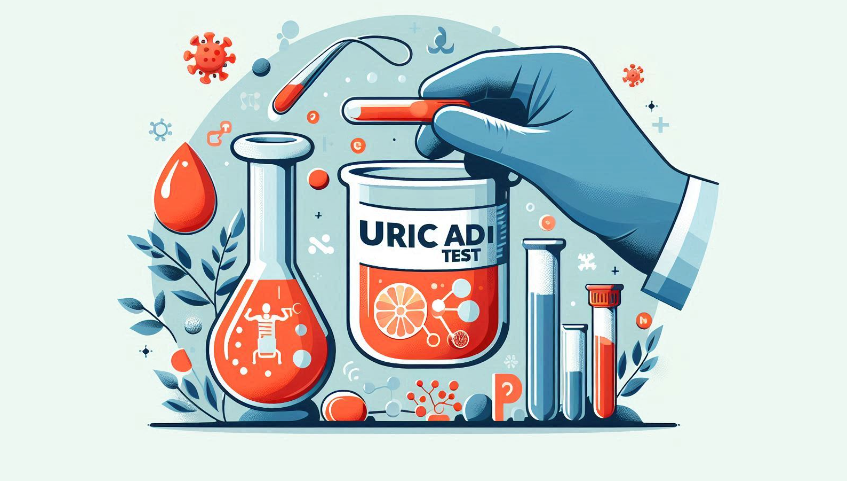What is a Uric Acid Test?
A uric acid test measures the amount of uric acid in your blood or urine. Uric acid is a waste product created when your body breaks down purines, which are found in certain foods and also produced naturally by your body. Most uric acid dissolves in your blood and is filtered out by your kidneys, leaving your body in your urine. However, if your body produces too much uric acid or your kidneys can’t eliminate it efficiently, it can build up in your blood, leading to health problems like gout or kidney stones.
Why Do You Need a Uric Acid Test?
Your doctor might order a uric acid test if they suspect you have:
- Gout: A type of arthritis characterized by sudden, severe joint pain, often starting in the big toe.
- Kidney stones: Uric acid can form stones in your kidneys, causing pain and potential complications.
- Other conditions: Uric acid levels can also be affected by certain medical conditions like leukemia, lymphoma, and kidney disease.
- Monitoring during chemotherapy or radiation therapy: These treatments can cause a rapid breakdown of cells, leading to increased uric acid levels, which need to be monitored.
What Does a Uric Acid Test Measure?
The test directly measures the concentration of uric acid in your blood or urine. Indirectly, it can help:
- Diagnose gout: Elevated uric acid levels in the blood are a key indicator of gout.
- Assess the risk of kidney stones: High uric acid levels in the urine can increase the risk of developing kidney stones.
- Monitor treatment effectiveness: In patients with gout or other conditions, the test can track the effectiveness of treatment in lowering uric acid levels.
- Identify underlying health problems: Abnormal uric acid levels can sometimes point towards other underlying medical conditions.
Preparing for the Test
Usually, no special preparation is needed for a uric acid blood test. However:
- Fasting: Some labs might recommend fasting for a certain period, so check with your healthcare provider.
- Medications: Certain medications can affect uric acid levels, so inform your doctor about any medications or supplements you’re taking.
For a 24-hour urine uric acid test, you will need to collect all urine produced during a 24-hour period, following the specific instructions given by your healthcare provider.
Understanding the Results
Normal uric acid levels can vary slightly depending on the laboratory and gender. Generally:
- For men: Normal range is typically between 3.4 and 7.0 mg/dL
- For women: Normal range is usually between 2.4 and 6.0 mg/dL
Higher levels indicate hyperuricemia, which can be associated with gout and kidney stones. Lower levels are less common but can sometimes occur with certain medical conditions.
Risk Factors and Prevention
Factors that can increase your risk of developing high uric acid levels include:
- Diet: Consuming a diet rich in purines (found in organ meats, seafood, and some alcoholic beverages) can elevate uric acid levels.
- Obesity: Being overweight or obese is associated with increased uric acid production.
- Medical conditions: Certain medical conditions like kidney disease, diabetes, and high blood pressure can affect uric acid levels.
- Medications: Some medications, like diuretics and low-dose aspirin, can increase uric acid levels.
- Family history: A family history of gout or kidney stones can increase your risk.
Prevention and management of high uric acid levels focus on:
- Dietary changes: Reducing intake of purine-rich foods and alcohol.
- Weight management: Maintaining a healthy weight.
- Medications: Your doctor might prescribe medications to lower uric acid production or improve its excretion.
- Staying hydrated: Drinking plenty of fluids helps flush uric acid out of your system.
Remember, a uric acid test is a simple blood or urine test that provides important information about your uric acid levels. If you have any concerns about your results or are experiencing symptoms like joint pain or kidney stones, consult with your healthcare provider for proper evaluation and guidance.

 7351982473
7351982473











